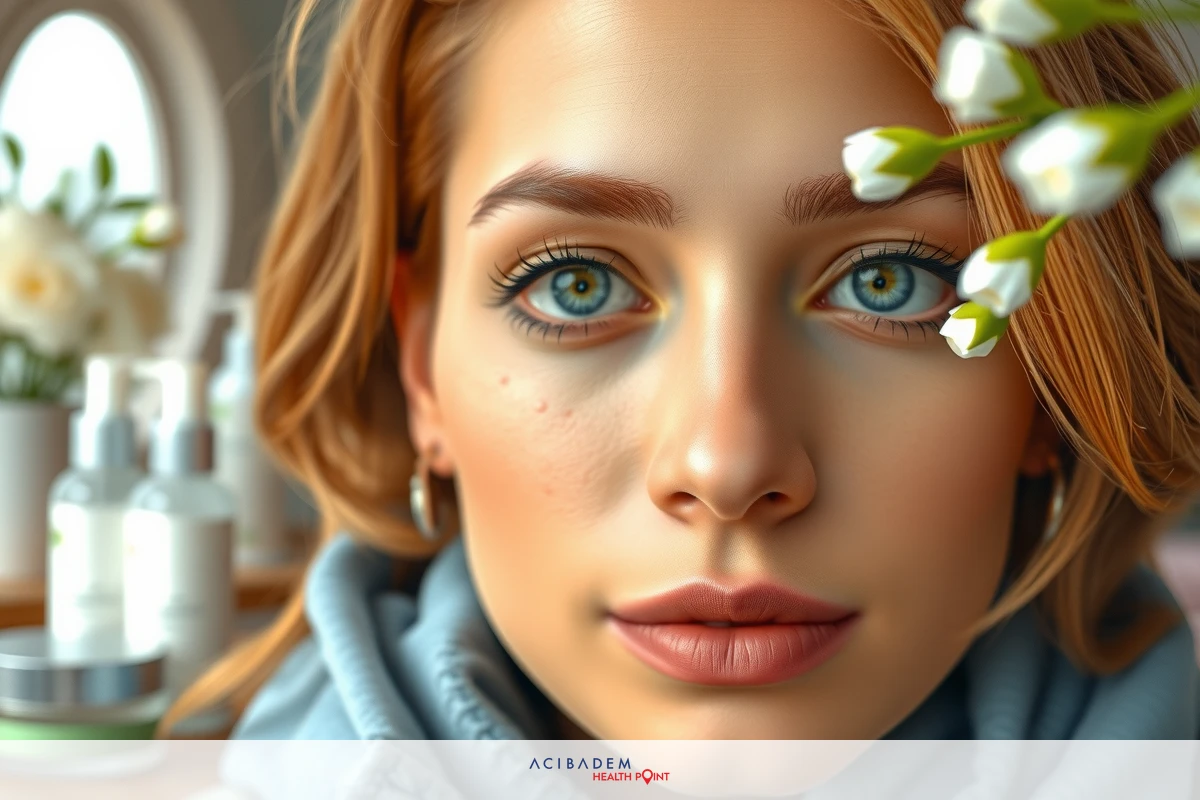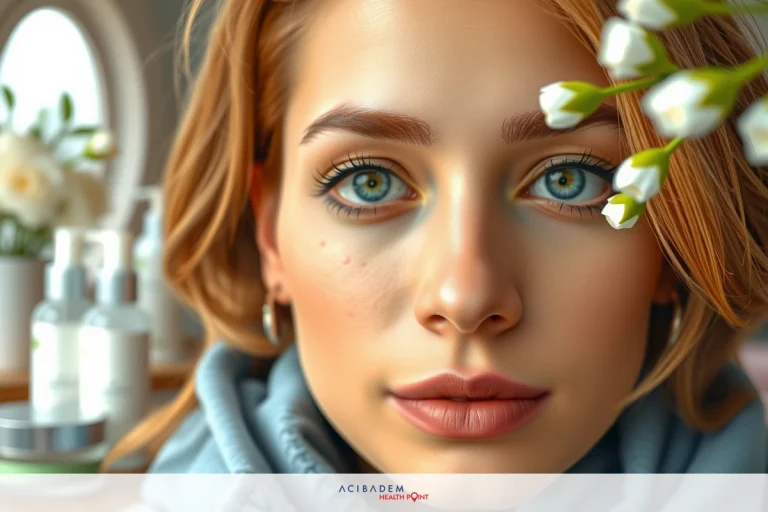How to Cover Bruises After Rhinoplasty
How to Cover Bruises After Rhinoplasty Within the realm of post-operative care, concealing bruises that occur after rhinoplasty poses a unique challenge. It’s essential to understand which makeup products can work wonders in this scenario. The right type of cosmetic application can not only hide these undesirable signs but also boost your confidence while you are on the road to recovery.
Mastering the art of applying makeup involves precision and knowledge about certain techniques that ensure maximum coverage. It’s interesting how a few strategic strokes can make a great difference in appearance! Furthermore, fostering an environment conducive for healing is equally vital—it quickens recovery and reduces the visibility of those pesky bruises!
These aspects together create an effective strategy to manage and mask bruising following rhinoplasty—without compromising your daily life or self-assurance during this transitional phase.
Choosing the Right Makeup Products
In order to effectively cover bruises after rhinoplasty, it is imperative that the correct products are selected. Not all makeup items will have the desired effect—some may not provide enough coverage, while others might be too harsh for your healing skin. Therefore, a carefully curated selection of cosmetics could play a pivotal role in both concealing post-surgical discoloration and safeguarding your delicate skin during recovery.
Begin with a soothing primer designed for sensitive skin—it serves as the perfect canvas for other products and has an added benefit of hydrating your skin which aids in faster healing. Next on our list is color-correcting concealers; these come in different shades designed to neutralize various types of blemishes. For instance, green cancels out redness whereas yellow counters purple or blue-toned bruises typical after rhinoplasty procedures.
An important aspect to remember when selecting foundation is to opt for one that matches your skin tone perfectly—a mismatch could draw attention towards bruised areas rather than away from them! Choose a product with enough pigment density to ensure ideal coverage without appearing cakey or heavy. In addition, it’s beneficial if this foundation provides sun protection as exposure can darken bruises and slow down recovery.
The choice of setting powder cannot be underestimated either—it locks everything in place ensuring the longevity of concealer and foundation application throughout the day. It’s recommended you choose one that’s translucent so as not to alter the color balance achieved by previous layers!
Finally, consider incorporating some nourishing lip balms into your routine—not necessarily just for lips but also any dried-out areas around nostrils post-rhinoplasty surgery. They help keep these regions moisturized facilitating smoother recovery while adding subtle shine veiling any slight discolorations left unaddressed by other products.
Application Techniques for Maximum Coverage
Understanding the right application techniques can make a significant difference in your ability to cover bruises and enhance recovery after rhinoplasty. It’s interesting how even with the best products at hand, improper technique can undermine your efforts to conceal discoloration. Hence, mastering these methods is crucial not only for effective coverage but also to avoid aggravating sensitive areas during healing.
Initially, cleanse your face gently using a mild product suitable for sensitive skin—this ensures there’s no dirt or oil that could interfere with makeup adherence. Follow this up by applying a primer in light circular motions; it creates an ideal base allowing subsequent layers of makeup to blend seamlessly.
Step 1: Begin by dabbing on the color-correcting concealer using either fingertips or a soft-bristled brush

focusing on bruised areas.
Step 2: Blend out edges into surrounding skin—remember blending is key! Step 3: Allow some time for this layer to dry before proceeding—it helps prevent smudging.
Step 4: Apply foundation over this layer ensuring you cover all concealed spots effectively.
Step 5: Again blend well into surrounding skin maintaining an even tone across your face.
Step 6: Dust setting powder lightly over everything locking it all in place while lending a natural finish.
It’s worth noting that each individual’s healing process and sensitivity might vary postrhinoplasty surgery hence adjusting these steps as per comfort levels is essential! Also remember less is more when starting out—you can always build up gradually achieving desired coverage without risking irritation!
By practicing these techniques regularly, you will soon become adept at covering bruises effectively post-rhinoplasty enhancing both appearance and confidence through recovery!
Promoting Healing and Recovery
While cosmetic techniques are indeed useful in concealing bruises, healing and recovery after rhinoplasty also play a crucial role in reducing their visibility. A twopronged approach of makeup application combined with proactive care to foster healing can create an environment that speeds up the process of bruise reduction, enhancing your overall well-being during this period.
The first step towards speedy recovery begins with maintaining a healthy diet rich in vitamins and minerals—especially Vitamin K known for its potential to reduce bruising by aiding blood clotting. Hydration is another fundamental aspect; drinking plenty of water helps flush toxins out from the body thus facilitating faster healing. Consider incorporating foods high in bromelain—a compound found predominantly in pineapples which has anti-inflammatory properties beneficial post-surgery.
It’s equally important to rest adequately following rhinoplasty surgery as it allows your body time needed for recuperation. Avoid strenuous activities including bending down or lifting heavy objects as these might increase blood pressure leading to further swelling or bleeding. Sleep with head elevated for initial few days—it aids drainage thereby reducing puffiness around operated area!
Another critical factor is sun protection; UV exposure can darken bruises prolonging their visibility hence it’s recommended you limit sun exposure where possible—if unavoidable ensure use of broad spectrum SPF products! At times icing applied intermittently around swollen regions (never directly on nose) can provide relief by constricting blood vessels minimizing inflammation!
Lastly, stress management cannot be overlooked either; engaging in calming activities like meditation or light reading not only keeps anxiety at bay but also encourages quicker recovery via positive mental state! Remember patience plays a key role here—allow yourself ample time without rushing through the healing phase!
Frequently Asked Questions
How to Cover Bruises After Rhinoplasty
Q: How long after rhinoplasty can I start applying makeup?
A: The exact timeline may vary depending on individual healing processes, but generally, you can begin using makeup to cover bruises about one week post-surgery.
It’s important to consult with your surgeon before starting any new regimen.
Q: Which type of makeup is safe for use after Rhinoplasty?
A: Opt for hypoallergenic and non-comedogenic products as these are less likely to irritate sensitive skin or clog pores. Also, ensure the products have a high pigment density for effective coverage of bruises.
Q: Can the choice of food aid in my recovery process? A: Absolutely! A healthy diet rich in vitamins and minerals, particularly Vitamin K can aid the body’s natural healing process. Foods containing bromelain like pineapples also possess antiinflammatory properties beneficial during recovery.
Q: What precautions should I take while sleeping post-rhinoplasty surgery? A: It’s advisable to sleep with your head elevated above heart level for initial few days following surgery; this aids drainage thereby reducing swelling around operated area!








